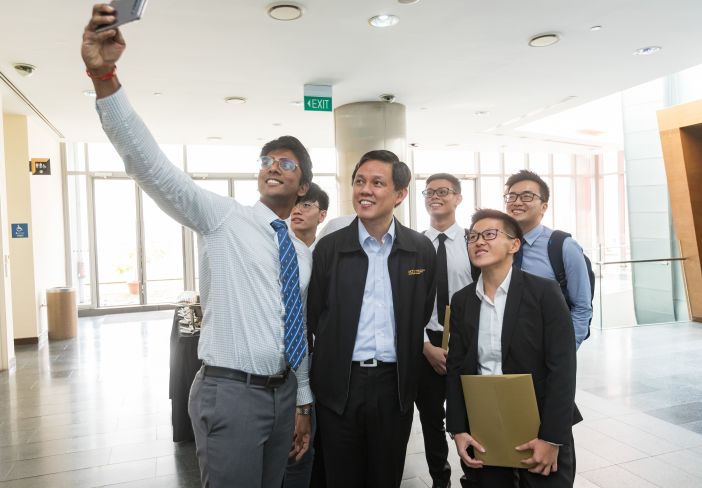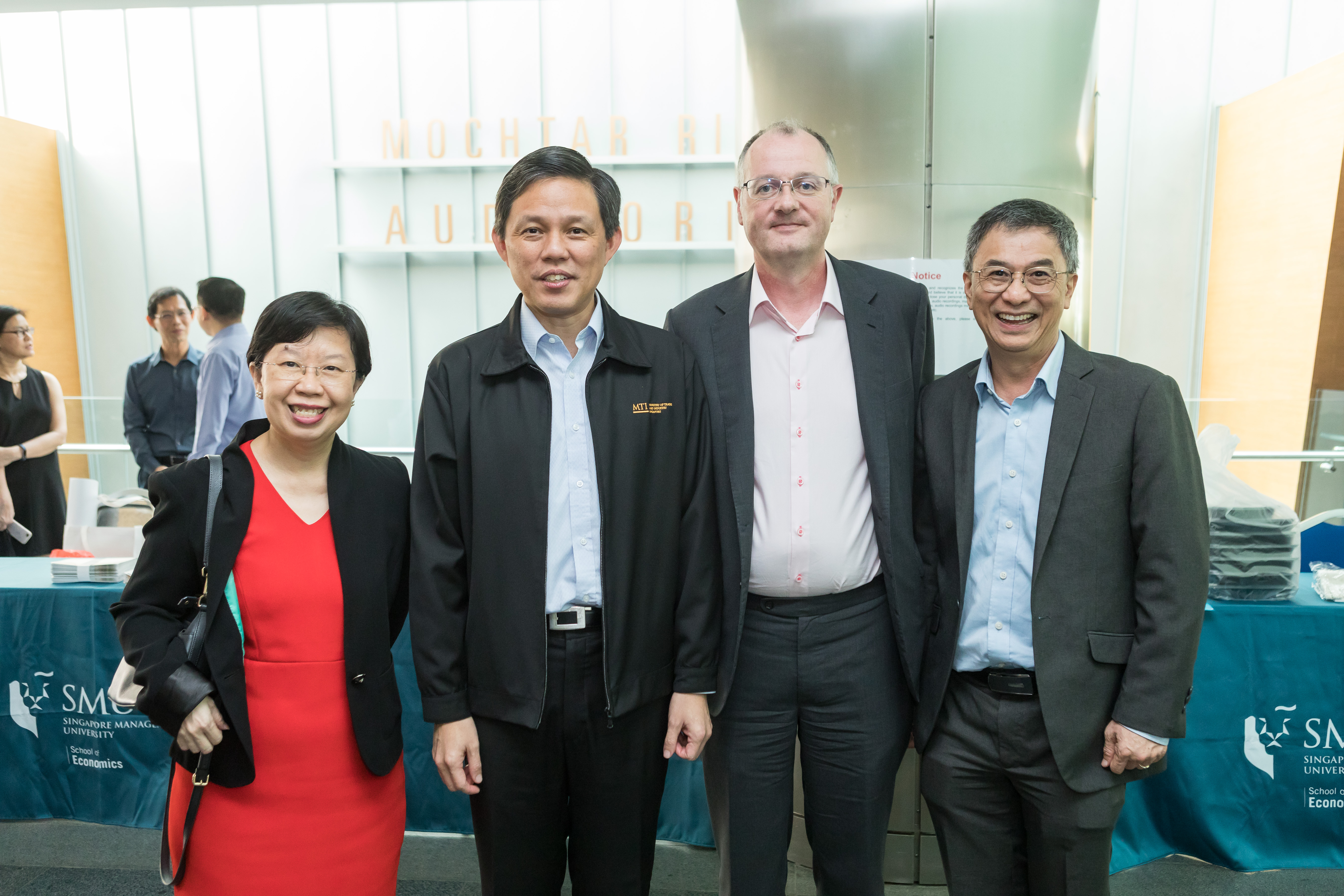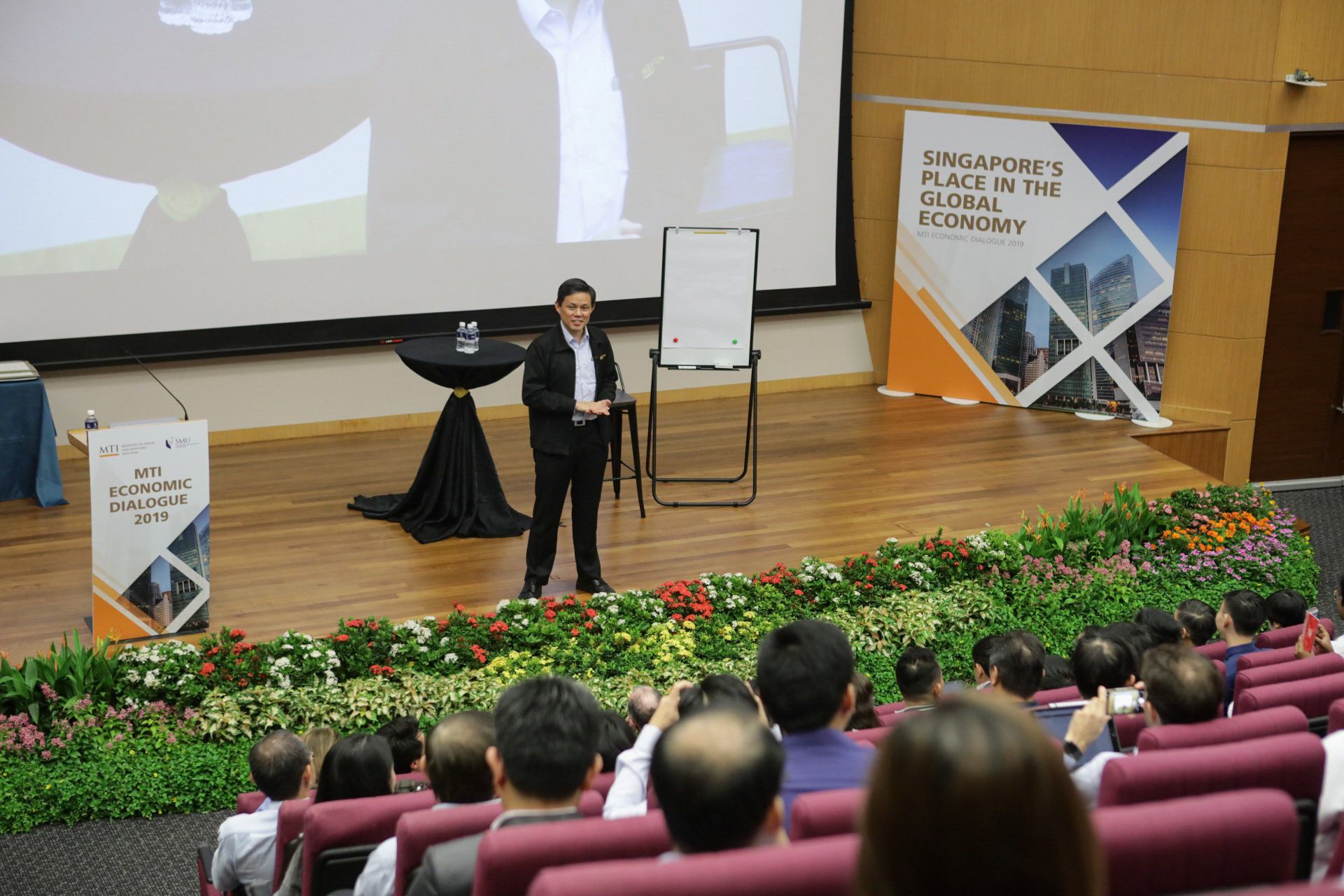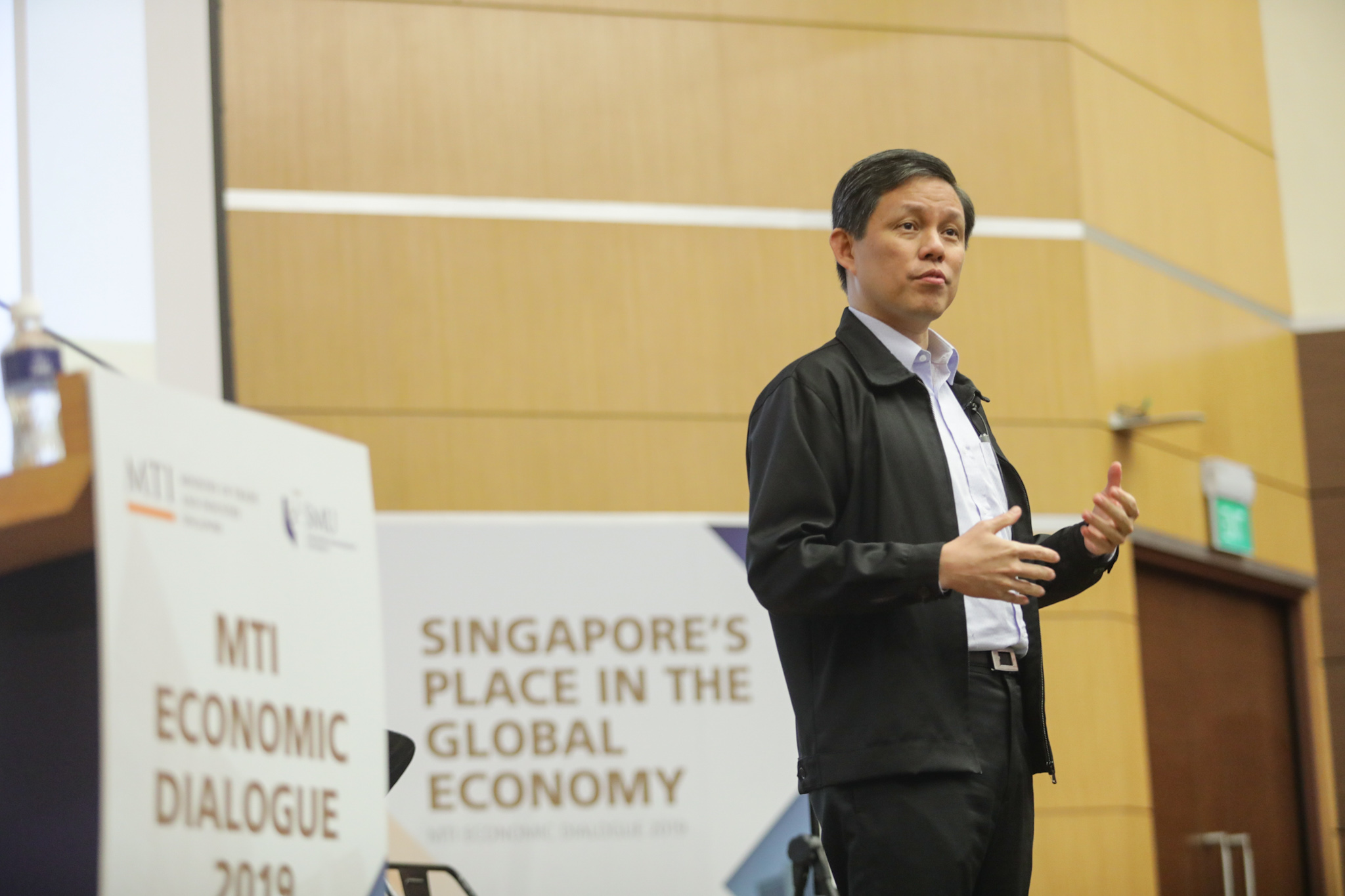
“The Innovator’s Dilemma by Clayton Christensen talks about the albatross of success. Once you have a high installed base, you tend to perfect that installed base. You are then vulnerable to disruption by others,” said Mr Chan Chun Sing, Singapore’s Minister for Trade and Industry, at the MTI Economic Dialogue held at the Singapore Management University (SMU) on 19 September 2019.
Mr Chan made the above comment in relation to the fact that Singapore needed to stay nimble, harness its competitive advantages and play to its strengths so as to stay competitive and resilient in a complex and globally connected world. He said, “The higher and stronger your installed base, the more rigid your own systems can become. Your incentive to innovate might be weakened or the barriers to entry might be higher. In other words, the less agile you become and the greater the chance of becoming ossified.”
The MTI Economic Dialogue, which first started in 2008, is an annual platform for students to gain insights into pertinent economic issues and challenges facing Singapore, and the role of economics in policy making. This year’s Dialogue was jointly organised by the Ministry of Trade and Industry and SMU School of Economics, and supported by the NUS Department of Economics and the NTU Economics Programme.

Themed “Singapore’s Place in the Global Economy”, this year’s Dialogue saw students and faculty engaging Mr Chan for his views on a variety of topics, ranging from the impact of the ongoing US-China trade and technology rivalry to climate concerns. The session served as a good opportunity for students to analyse and gain a greater appreciation of the role played by the discipline of economics in policymaking. Some 200 educators and students from local universities attended the Dialogue held at SMU’s Mochtar Riady Auditorium, gaining rich insights from Mr Chan that were peppered with his laconic humour and dry wit.

In her welcome remarks, SMU President Prof Lily Kong, said, “As part of the Vision 2025 that SMU articulated, we set for ourselves the following objectives as such. Firstly, we aim to deliver transformative and holistic education to young people, so that they will be able and ready to make meaningful impact on economy, society and polity. Secondly, through our research and thought leadership, we might be able to lend that intellectual capital to making a difference, again to economy, society and polity. Thirdly, as a university that’s situated, fortunately, deeply in the heart of the city, we see ourselves as a global city university where we not only contribute to the vibrance, health and well-being of the city, but also draw from it that energy that a city stands for.”
Following Prof Kong’s welcome remarks, Mr Chan took the stage and kickstarted the session by opening the floor to questions that the audience might have, percolating in their heads. In response to a question on how Singapore could compete effectively and deepen its access to markets, Mr Chan referred to a recent McKinsey report which mentioned that the majority of all global investment decisions are not made based on the cost competitiveness of land or labour but on intellectual property protection, R&D, innovation and connectivity. He added, “Singapore must compete on the basis of the robustness and resilience of our network and connectivity.”

Asked by a student how Singapore could build a more resilient economy, Mr Chan identified diversification as a key strategy. He expressed confidence that Singapore could distinguish itself by diversifying into sectors that fit well with the nation’s strengths, while minimising over-fragmentation. With a diversified economy, Mr Chan commented that “there is another price to be paid. You won’t grow very fast, but you won’t fall very quickly as well.” Mr Chan cited growth numbers and sentiments within the electronics, biomedical, professional services and various sectors to illustrate the point that the diversification strategy helped to counterbalance the cyclical growth across different industries.
In recognition of the academic achievements of top economics students in the universities, Minister Chan also presented the MTI Academic Awards during the session. The MTI Book Prize was awarded to the best third year economics students in SMU, NUS and NTU for their outstanding academic achievements. The prestigious MTI Best Thesis Award was presented to recipients in recognition of excellence in economic research.

The Economist Service (ES) Scholarship was awarded by MTI to promising young talent keen to pursue their undergraduate studies. ES is the premier service for professional economists in the Singapore public sector and ES officers are deployed across the public sector, with the purpose of enhancing the economic analysis of public policies.
Congratulating the award and scholarship recipients, Minister Chan said, “In time, when you have succeeded in the different stations in life, all I ask is that you remember that today, you are a privileged lot. We will continue to make sure that every generation, regardless of race, language or religion, background or ancestry, rich or poor, will have the best opportunities to succeed. We hope that you will also do that for the next generation. We hope that when you have succeeded, you will also give back to those who have less.
This is something that has been ingrained in me: We will never have enough resources to do all the many things that we want but we must make the correct decisions to produce the maximum good that we can, with the finite resources that we have. This is rule number one as an economist.”
[Featured Photo: Minister for Trade and Industry, Mr Chan Chun Sing, in a wefie shot with economics students at the MTI Economic Dialogue 2019 at SMU on 19 September.]